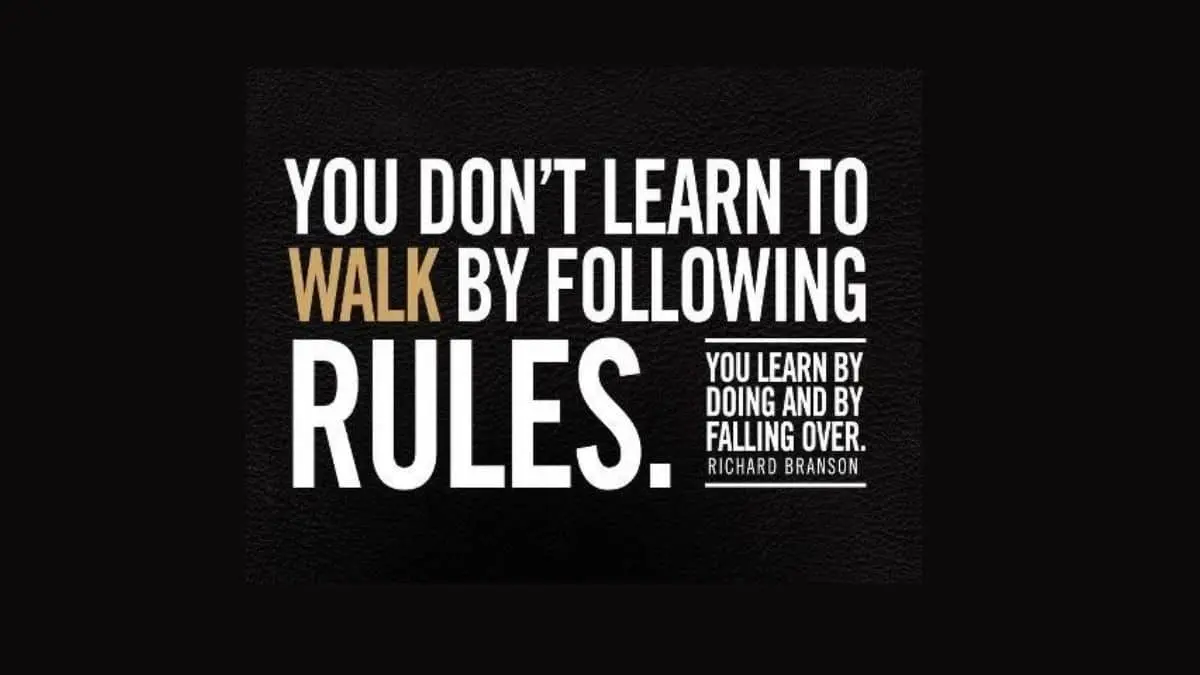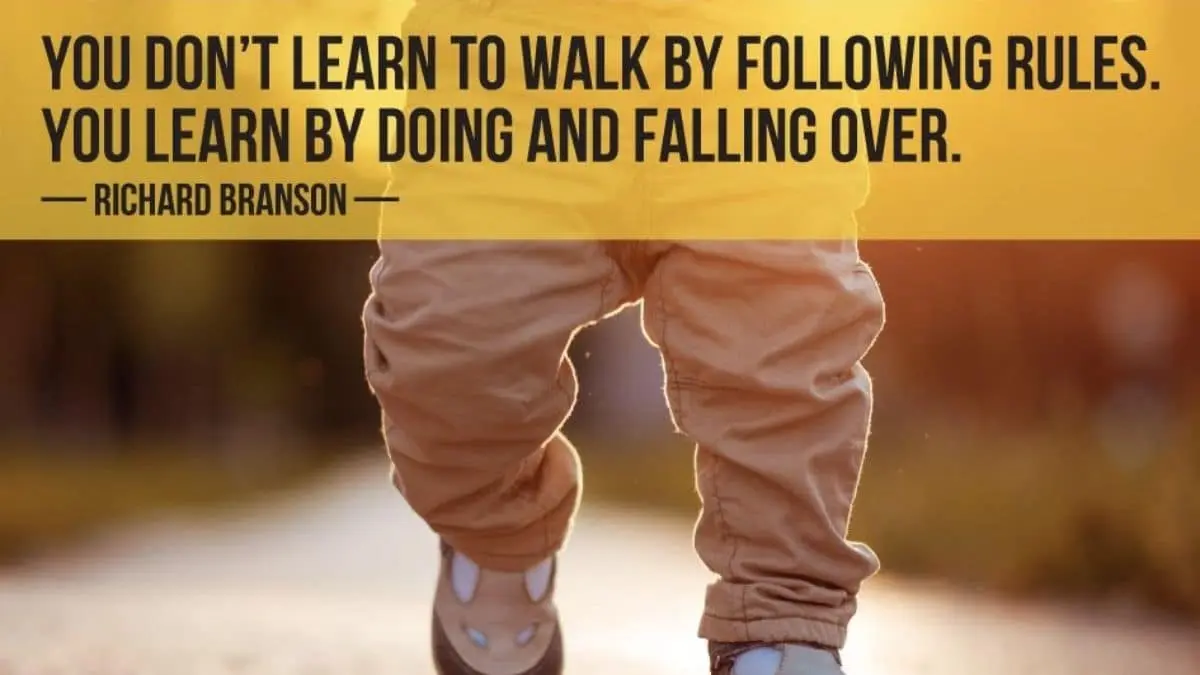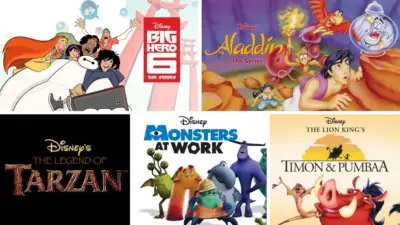Learning is a fundamental aspect of human existence, and it is a lifelong journey filled with challenges and triumphs. The quote, “You don’t learn to walk by following rules. You learn by doing and falling over,” encapsulates the essence of learning through experience and failure. In this blog, we will explore the significance of this quote, the importance of hands-on learning, and how embracing failure can lead to growth and success. Through real-life examples, we will delve into the worlds of entrepreneurship, sports, and education to illustrate the power of learning by doing and stumbling along the way.
The Essence of Learning by Doing
Breaking Free from Conventional Wisdom
In our society, we are often conditioned to follow rules and guidelines as a means to achieve success. From an early age, we are taught to avoid mistakes and adhere to a structured path. However, there is a growing realization that true learning and growth occur when we step outside the comfort zone and engage in experiential learning.
The Journey of Learning
Learning is not a destination; it is a journey. To truly understand and master a skill or concept, we must immerse ourselves in it, take risks, and be willing to make mistakes. The act of falling over is an integral part of this journey, as it leads to self-discovery and improvement.
Learning Through Failure in Entrepreneurship
The Entrepreneurial Spirit
Entrepreneurship is a realm where the quote, “You learn by doing and falling over,” is particularly relevant. Entrepreneurs often face immense uncertainty and adversity, and their success is frequently built upon a foundation of failures and setbacks.
Embracing Failure as a Stepping Stone
Failure is an integral part of the entrepreneurial journey. Every successful entrepreneur has experienced their fair share of failed ventures, but they have learned from their mistakes and used them as stepping stones to achieve their goals.
Real-World Examples
a) Steve Jobs: The co-founder of Apple Inc. faced rejection, failure, and even being ousted from his own company. However, he returned to Apple with a renewed vision, leading to groundbreaking innovations like the iPhone and iPad.
b) Elon Musk: Musk’s ventures, including Tesla and SpaceX, have faced numerous challenges and failures. He has learned from these experiences, continuously improving his companies and pushing the boundaries of technology.
The Role of Failure in Sports
The Athletic Arena
Sports are another domain where the quote holds true. Athletes are not born champions; they become champions through hard work, dedication, and learning from failures.
Perseverance and Growth
Failure in sports can manifest in the form of losses, injuries, or performance setbacks. Athletes who persevere through these challenges often emerge stronger, with greater resilience and skill.
Real-Life Athlete Stories
a) Michael Jordan: Widely regarded as one of the greatest basketball players of all time, Jordan was cut from his high school basketball team. He used this failure as motivation to become a global icon in the sport.
b) Serena Williams: Despite her incredible success in tennis, Serena Williams has faced defeats and injuries throughout her career. Her determination to overcome setbacks has contributed to her legendary status in the sport.

Educational Innovations: Learning Beyond the Classroom
Traditional vs. Experiential Education
The conventional education system primarily relies on rules, structure, and standardized testing. However, many educators and institutions are recognizing the importance of experiential learning as a powerful tool for student growth.
Project-Based Learning
Project-based learning encourages students to actively engage in projects and problem-solving, providing them with the opportunity to make mistakes and learn from them. This approach fosters critical thinking and creativity.
Real-World Impact
a) High Tech High: This innovative charter school in California focuses on project-based learning, where students tackle real-world problems. Graduates of High Tech High have a track record of success in college and their careers.
b) The Maker Movement: Maker education emphasizes hands-on learning, encouraging students to build and create. This movement has gained momentum worldwide, showcasing the value of learning by doing.
The Psychology of Learning from Mistakes
Cognitive Perspective
From a psychological standpoint, learning from mistakes is rooted in our cognitive processes. Mistakes challenge our existing knowledge, leading to reflection and the development of new understandings.
Growth Mindset
The concept of a growth mindset, popularized by psychologist Carol Dweck, emphasizes that abilities and intelligence can be developed through effort and learning. Embracing failure is a key element of this mindset.
The Resilience Factor
Building Resilience
Failure and setbacks can be emotionally challenging. However, they also provide an opportunity to build resilience, which is the ability to bounce back from adversity.
Real-Life Examples
a) J.K. Rowling: Before achieving immense success with the Harry Potter series, Rowling faced rejection from numerous publishers. Her resilience and determination ultimately led to her becoming one of the world’s best-selling authors.
b) Thomas Edison: Edison made thousands of unsuccessful attempts before inventing the light bulb. His famous quote, “I have not failed. I’ve just found 10,000 ways that won’t work,” exemplifies his resilience.
Strategies for Learning Through Failure
Embrace a Growth Mindset
To maximize the benefits of learning through failure, adopt a growth mindset. Understand that intelligence and abilities can be developed through effort and perseverance.
Reflect and Adapt
After experiencing failure, take the time to reflect on what went wrong and what can be learned. Adapt your approach, making improvements based on your observations.
Seek Feedback
Feedback from others can be invaluable in the learning process. Constructive criticism can provide insights that may not be apparent when reflecting on your own experiences.
Conclusion: The Beauty of Falling Over
In conclusion, the quote, “You don’t learn to walk by following rules. You learn by doing and falling over,” serves as a powerful reminder that learning is a dynamic and ever-evolving process. Whether in entrepreneurship, sports, or education, embracing failure and learning from mistakes are vital components of personal and professional growth. Real-life examples of individuals who have turned failure into success demonstrate the transformative power of hands-on learning. So, the next time you stumble and fall, remember that it may be the most significant step on your path to success.
Also Read: Tears are Words that need to be Written



